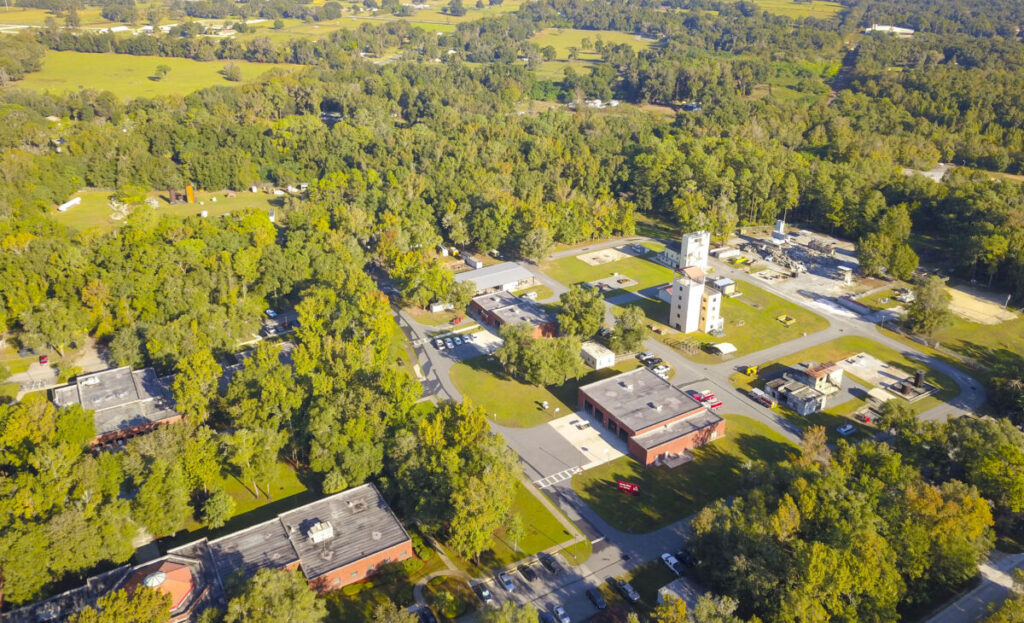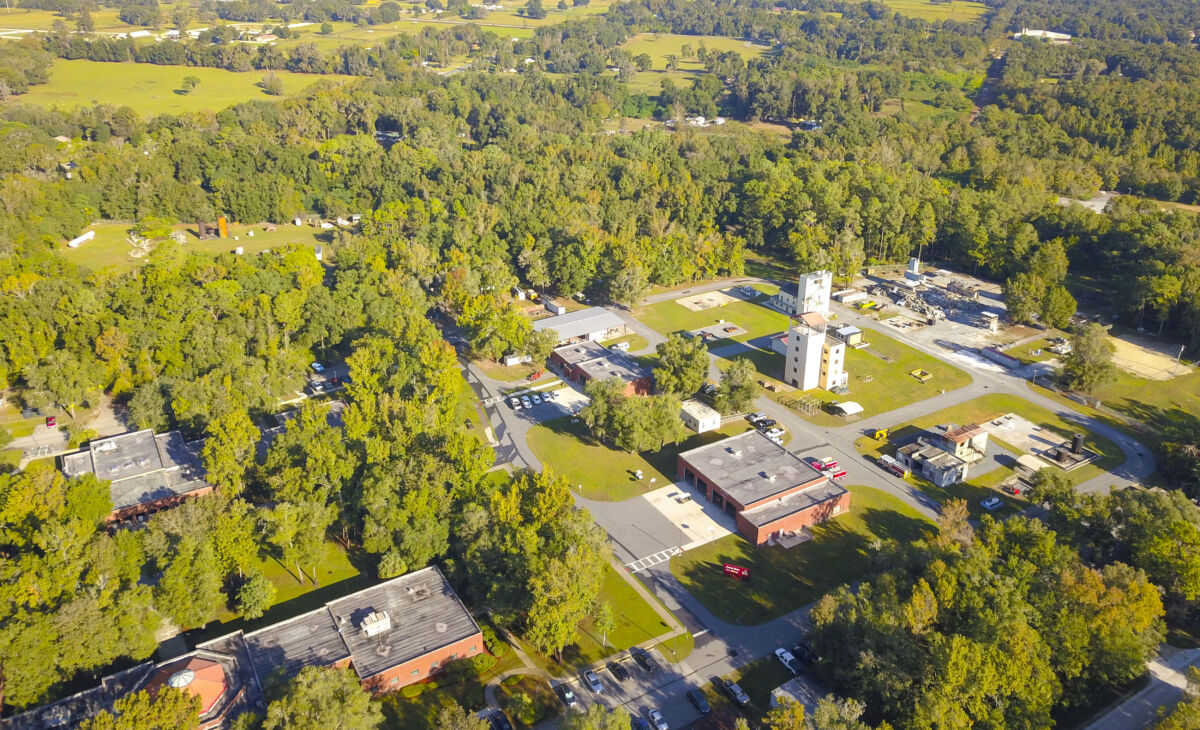Marion County lists contaminated water site as a legislative priority

The Florida State Fire College, whose rescue tower is shown in the middle of their campus, poisoned the wells of nearby homes in Lowell, Florida with the fire retardant foam the firefighters train with. For the past several years, residents have been drinking bottled water and waiting for filtration systems. [Alan Youngblood/Special to the Ocala Gazette]

The Florida State Fire College, whose rescue tower is shown in the middle of their campus, poisoned the wells of nearby homes in Lowell, Florida with the fire retardant foam the firefighters train with. For the past several years, residents have been drinking bottled water and waiting for filtration systems. [Alan Youngblood/Special to the Ocala Gazette]
FDEP testing showed that “perfluorooctanoic acid (PFOA) and perfluorooctanesulfonic acid (PFOS), as well as soil contamination have been detected above DEP’s provisional cleanup target levels,” in the water at and around the fire college and the Lowell area, according to the agency’s website.
Per- and polyfluoroalkyl substances fall under the category of PFAS chemicals and, according to the FDEP, they “do not naturally degrade. When released into the environment, PFAS can cause contamination to soil, groundwater and surface water, and these impacts may pose a risk to public health and the environment.”
The United States Environmental Protection Agency lists multiple adverse effects from consuming water contaminated with PFAS, including developmental impacts to fetuses during pregnancy and breastfed infants such as low birth weight, accelerated puberty and possibly skeletal variations.
Other effects of PFAS exposure include cancers (testicular and kidney specifically), tissue-damaging liver effects, immune-system effects, thyroid effects and other issues.
FDEP documents show the Florida Department of Health (FDOH) hand-delivered a notification regarding the contamination, along with bottled water, to the fire college and residents in the immediate area in 2018 and into 2019.
While the area did not make the county’s list of legislative priorities in 2018, 2019 or 2020, it did in 2022.
The Marion County Board of County Commissioners (MCBOCC) highlighted the project to the Marion County legislative delegation earlier this month, with a request for “$5,732,275 to fund the cost of design, permitting, and construction of approximately 35,513 feet of 12-inch water line extension with valves, fire hydrants, and a water booster station,” according to an MCBOCC document.
The project was also included in an initial round of discussions among county administrators and commissioners in August while contemplating which projects should be funded from federal money received under the American Rescue Plan Act (ARPA). Marion County Administrator Mounir Bouyounes said that even though many of the contaminated areas, such as the fire college and Lowell Correctional Facility, are state-controlled properties, the county has an obligation to its residents.
“The county is in the business of providing central water and sewer. And when we were made aware of the contamination that we have in the local area, and it does impact more than the state property, it does impact private property, it impacts the fire station that we have up there,” he said.
“So, we look at the impact from that contamination, and we are in the business of providing central water and sewer. And we think that’s a project that the state will be interested in partnering with us to do it. And even with the ARPA money, we thought it would be a good project to get done and to help that area,” Bouyounes continued.
While a $7 million water project funded by ARPA was proposed, the board ultimately decided to wait to see if any state funding or state cooperation could be obtained before proceeding.
Rep. Yvonne Hayes Hinson (D) represents District 20, where Lowell and the fire college are located. She issued a statement that read “Access to clean water is a fundamental human right, and it is an essential component to ensuring the health and safety of the community. Guaranteeing clean drinking water for citizens in Lowell should be a top priority during this legislative session. We have the responsibility to do better for our community and all who reside in it.”
Sen. Keith Perry, whose district also includes the affected areas, did not return a request for comment.
The next Florida congressional session convenes at noon Jan. 11, 2022.





